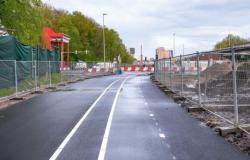It is perhaps one of the most valuable things in Utrecht: land. Apart from the price, the lack of land is a particular problem. Because land is needed for almost everything, but currently mainly for housing construction. In times of severe housing shortage, land is a valuable factor. The municipality of Utrecht is therefore breaking with the past, tightening the reins and wanting to gain control over land in the city. How do they do that well? Demand more and buy more.
It may not sound very exciting, but governments such as the municipality of Utrecht implement land policy. However, the consequences of land policy can be felt in many areas. Especially in Utrecht, because space and land are starting to become scarce. The municipality also wants many things, such as more affordable housing, additional schools, parks and social facilities. The land price also largely determines the construction price.
Land policy has of course always been a topic in Utrecht, but there has now been a real change of course; do not leave everything to the market and facilitate as a municipality, but take control and direction. That can conflict with other interests.
Text continues below image
Ravellaan Noord
It became clear this month that not everyone is happy with the active land policy. The municipality clashed with the owner of 25,000 square meters of land around Ravellaan Noord. The municipality opened the toolbox of active land policy and put two demands on the table. If the owner wants to sell his land, this must first be offered to the municipality. The municipality has thus demanded the first right of purchase.
The second measure imposed was to freeze the current situation. The owner now has far fewer options to do what he wants with his buildings and the land. For example, permit applications can be more easily refused.
Why is the municipality doing this? In their own words because the housing plans around Ravellaan are not progressing. There have been discussions with the owner for years, but there seems to be no progress in the matter. This has to do with the discussion about the number and type of homes. These numbers have consequences for the so-called business case. Certain homes simply yield more for the landowner than other homes.
The municipality would like to see as many affordable homes as possible. There seems to be a point of contention there. In total there are a few hundred homes that could be built here. By imposing these types of measures, the municipality believes that houses will be built faster and that house prices will remain lower.
The fact that these types of interventions are damaging was evident from the reaction of the owner, De Waal. The measures infringe on De Waal’s property rights. He cannot simply decide for himself what he wants to do with his buildings and land. That is why De Waal is not happy with the actions of the municipality. According to the owner, the municipality’s strategy would actually damage confidence in good cooperation, which would in turn delay the arrival of homes.
Merwedekanaal zone
The situation on Ravellaan Noord is just one of the examples. For example, last year the first right of purchase was also demanded in the Merwedekanaal zone. The municipality ultimately also paid 9,250,000 euros there when an owner wanted to get rid of his plots. Even then, the argument was that the municipality wants to keep control over the development of this area. This concerns the addresses Eendrachtlaan 280 and Zeehaenkade 48 and 50.
Text continues below image
The same argument was put forward: “This way we prevent the land from becoming too expensive (for example through land speculation). That is important: because by purchasing the land at a market price, we increase the chance that affordable housing will be created.” Because the land now belongs to the municipality, they can determine what happens to it much more easily than if the land belongs to a company.
Of course, purchasing land does not always have to be done by demanding the right of first refusal, but can also be done through regular purchases. Or even through expropriation. However, the latter is called an exception. And of course, purchasing land always costs money. There are also financial risks associated with this, the municipality itself says. But according to the municipality, there is also such a thing as social benefits, which means that not all benefits can be expressed in euros. Some things that are necessary simply cost money. It does require something from the municipal organization to take a smart look at land positions in the city. Civil servants must actively work on this.
Construction obligation
Active land policy is not just about buying land. The municipality also makes land available to private individuals and companies. The municipality says it always uses ‘market-based prices’. Land must be issued via leasehold structures, so that the municipality can include rules.
There’s more in the toolbox. For example, the municipality would like to see it able to introduce a construction obligation. “Too often it happens that construction sites that we as a municipality do not own remain fallow,” it can be read. “Sometimes parties wait in the hope of better times, while the challenges we face cannot wait.” That is why the municipality could force landowners to start building, but that is not the case yet.
Text continues below image

Another measure that is not yet in force is the planned benefit tax. This is a tax measure in which landowners pay money to the municipality if the land becomes worth much more money, this happens, for example, if a pasture turns into housing land. The national government has not yet decided whether this will actually be introduced.
The municipality wants to gain control over land through an active land policy. There are financial risks involved, and this type of policy is sometimes at odds with the interests of landowners. However, the municipality wants to provide more affordable housing through an active land policy.
“Affordable housing is one of the spearheads of the coalition agreement. Active land policy is an important step to make affordable housing possible in the future,” says councilor Linda Voortman (Land Affairs). “By intervening now, we prevent developers, for example, from having the opportunity to further increase land prices. By preventing these types of unnecessary price increases, we bring affordable housing one step closer for Utrecht residents. A fair land price now means more affordable housing in the future.”
The new policy of the municipality of Utrecht on land policy will still be discussed by the municipal council. So changes may still take place.








